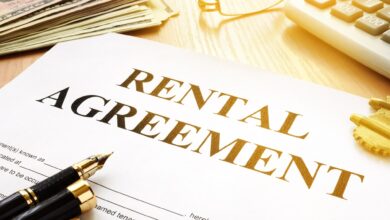Weighing the Pros and Cons of Different Central Heating Systems
Are you feeling the chill creeping into your home, but also dreading the spike in your energy bills? It’s a dilemma many homeowners face, especially with the UK’s unpredictable weather. But fear not! We’ve got you covered with everything you need to know about home heating systems. In this post, you’ll learn about the traditional to the cutting-edge systems. But if you don’t have any heating system installed in your home, you may be eligible for first time central heating grants. The government through these grants wants you and your family to stay warm and protected. Once you install central heating, your energy prices will dramatically decrease. Apply today, if you haven’t a central heating system.
Now, let’s take a look at different heating systems that are in practice in the country.
Gas Central Heating
Gas central heating has long been the go-to option for many UK households. It’s reliable, efficient, and relatively affordable. But you must have a mains gas connection. Without it, you can’t avail of this option.
LPG Central Heating
LPG central heating offers a viable alternative for those off the gas grid. While it may come with its own set of challenges, such as storage and fluctuating prices. Its running costs make it a contender worth considering.
Electrical Central Heating
Electric central heating systems come in various forms, each with its own quirks and considerations. From storage heaters to immersion heaters, there’s no shortage of options. But beware of the higher running costs. These compared to gas could be unbearable. So, consider the impact on your energy bills before making a decision.
Oil Central Heating
Oil heating systems have been a staple for many UK home improvements, but their days may be numbered. With government plans to phase out high-carbon fossil fuel heating, now’s the time to explore cleaner alternatives.
Pros and Cons of Different Heating Systems
But before you dive headfirst into any heating system, weigh the pros and cons carefully. Consider installation costs and running expenses. Also, think about the environmental impact on your home and budget.
Pros of gas central heating
- It is easy to replace a standard gas boiler with a modern more efficient condensing boiler. It improves your cost efficiency with an upgrade.
- Gas boilers are capable of heating larger homes as they are more powerful than electric boilers.
- If you are on the piped network straight to your home there is no need for gas storage considerations.
Power cuts do not affect gas heating.
Cons of gas central heating
Installing a gas central heating system can be expensive. This is especially true if your property is one of the four million UK homes not on the gas network. Global gas supply affects prices because the UK is only self-sufficient for just over half its demand.
The annual cost of running gas has also to take into consideration an annual service charge and any maintenance that may arise.
Gas is not a clean source of energy; it is a fossil fuel that produces carbon dioxide when burned.
You should use carbon monoxide detectors with gas heating systems and we recommend regular maintenance to ensure they run safely.
Pros of LPG Central Heating
Cost Efficiency: Slightly cheaper to run compared to heating oil or gas.
Cons of LPG Central Heating
- Delivery Dependency: Running out of LPG can lead to inconvenient waits for the next delivery.
- Additional Expenses: Annual running costs include tank purchase or rental from suppliers.
- Aesthetic Concerns: Above-ground tanks may be unsightly, though underground options exist.
Pros of Electric Heating Systems
- Easy Installation: No need for pipework or flue, making installation simpler and cheaper than gas.
- Low Maintenance: No annual service is required, and mains electricity is widely available.
- Safety Benefits: No need for carbon monoxide detectors or worries about fuel leaks.
Cons of Electric Heating Systems
- Higher Running Costs: Electricity prices are significantly higher than gas, impacting overall expenses.
- Price Vulnerability: Gas price increases affect electricity costs due to gas-powered generation.
- Tariff Considerations: Night-time tariffs may offer lower rates, but daytime usage can be costlier.
- Environmental Impact: Electricity production relies on gas, making it less eco-friendly than gas heating.
Pros of Oil Heating
- Fuel Flexibility: Stockpile fuel when prices drop.
- Efficiency Boost: Modern boilers maximize oil’s efficiency.
Cons of Oil Heating
- Price Fluctuations: Costs change due to various factors.
- Delivery Dependence: Waiting for fuel can be inconvenient.
- Installation Hurdles: Initial costs and space needs can be high.
- Environmental Impact: Oil isn’t eco-friendly, and emits carbon.
- Government Guidance: Recommends renewable options.
Bottom line
Whether you opt for traditional gas heating or embrace renewable energy, the goal remains the same: keeping your home warm and cosy while keeping your energy bills in check. So, take your time, do your research, and make a decision that’s as good for your wallet as it is for the planet. After all, when it comes to home heating, it’s not just about staying warm – it’s about heating smarter.



